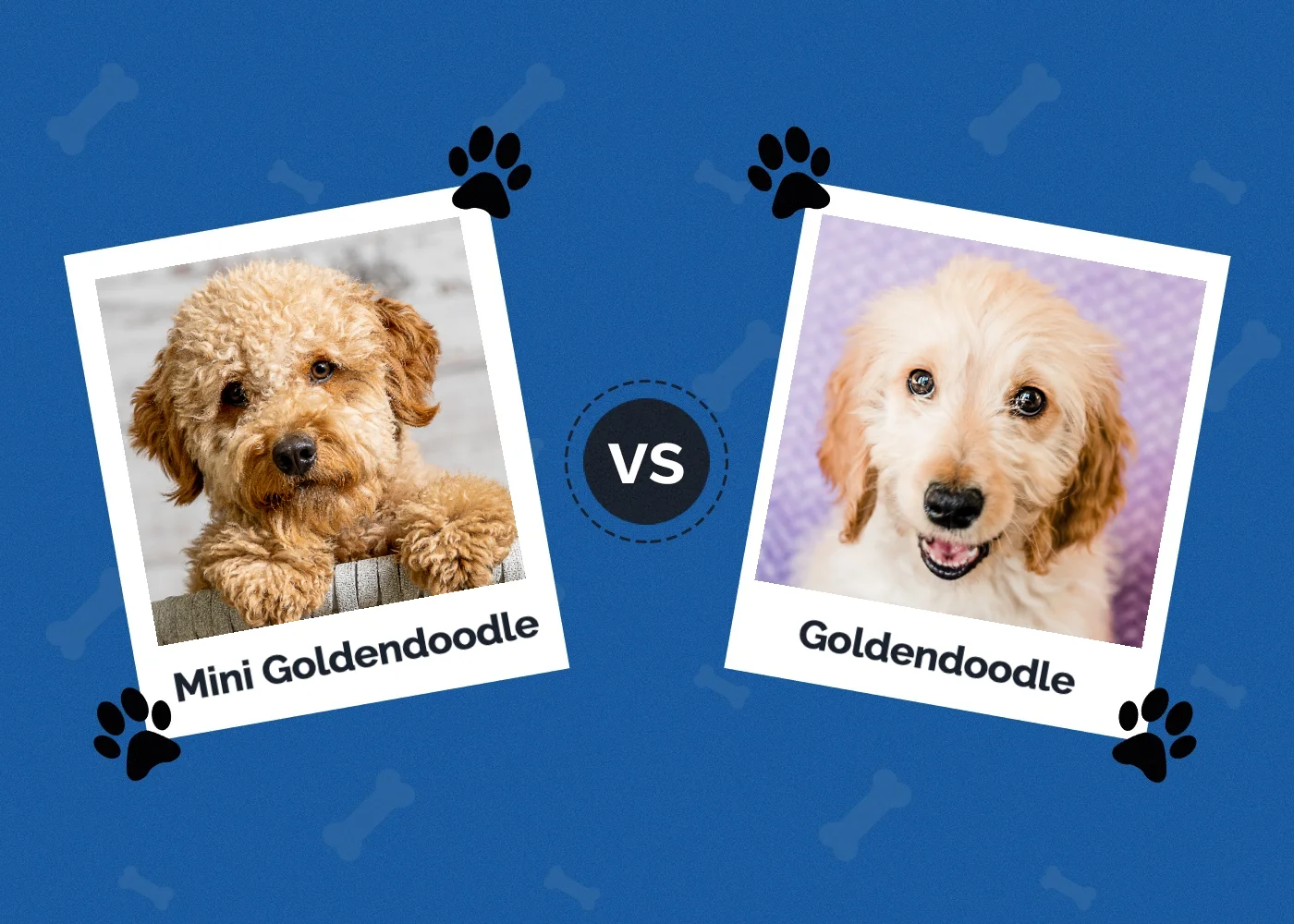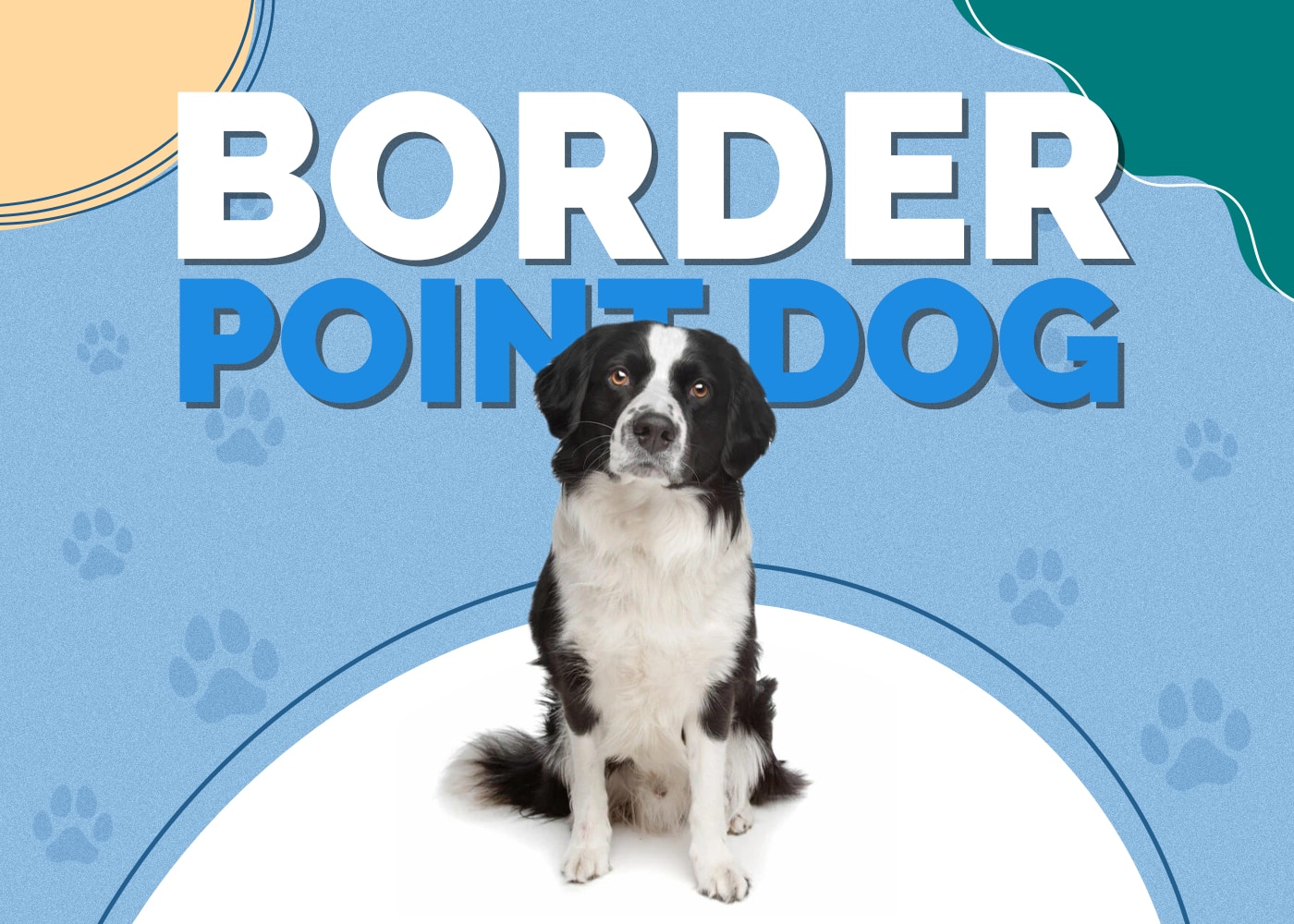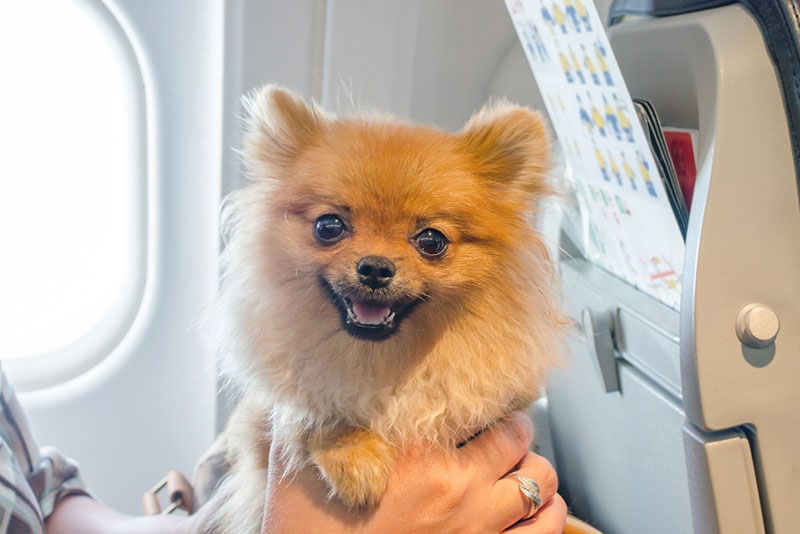Why Do Dogs Eat Grass? (8 Possible Reasons)

Updated on
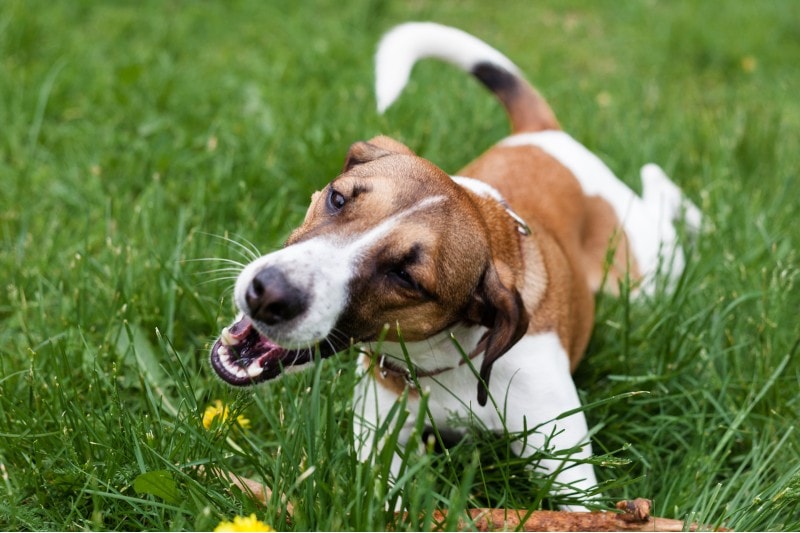
Not all dogs eat grass, but quite a few do. If you own a dog, you’ve likely caught them munching on grass in the yard or out on a walk. The question of why they eat grass seems pretty simple, but it’s a more complicated answer than you might think. We’ll explore a few reasons why a dog might eat grass in this article. Read on to find out eight reasons your dog might be eating grass and what to do about it.
Before We Begin: How Can I Stop My Dog From Eating Grass?
If your dog isn’t eating grass obsessively, only eats it occasionally, and doesn’t show any other signs of gastrointestinal problems, you can safely let them eat grass if it’s on your property. However, if you want to stop your dog from eating your grass or want them to stop eating grass when out on walks, there are a few things you can try:
- Teach them to “leave it” and offer a treat as an alternative when they approach the grass. This works especially well with positive reinforcement.
- Distract them with a toy or a game before they get to any grass they usually try to eat.
- If your dog eats grass out in the yard, provide them with a rotation of fun toys to play with, and make sure you give them some quality time with you out there, too, so they aren’t bored.
- Speak to your veterinarian to rule out any nutrient deficiencies in their diet and learn which supplements you can use to improve the condition.
The 8 Reasons Why Dogs Eat Grass
1. Fiber
Dogs need fiber in their diet as it’s an essential part of what they’d naturally eat. Dogs aren’t strict carnivores like cats are (meaning they don’t exclusively eat meat), but meat makes up the largest portion of their diet. In the wild, dogs (and wolves) will eat the entirety of a prey animal, including the stomach contents.
This could be where dogs get their roughage, but domesticated dogs don’t usually get the chance to do this. Fiber is undigestible plant material that helps the gut move food through the digestive system smoothly, so a dog eating fiber could be doing so to improve its gut motility.
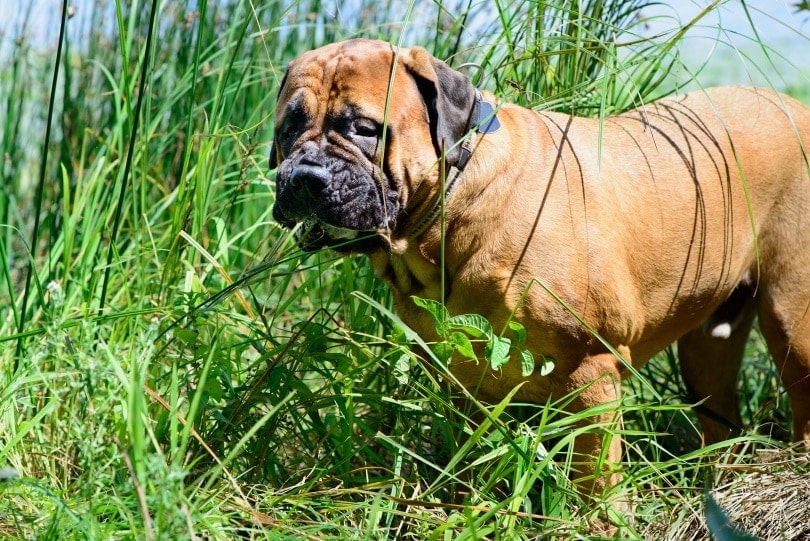
2. Nutrients
Domesticated dogs usually have a well-balanced diet consisting of wet food or kibble, which contains all the fiber, protein, and fat that a dog needs. However, not all diets are created the same. If a dog has a medical condition, it may require additional nutrients that a generic diet might not be able to provide.
Pregnant dogs or dogs recovering from injury might also need more nutrition, so eating grass may be a dog’s way of supplementing their diet with additional vitamins and minerals. Check with your vet if you think your dog might be deficient in any nutrients.
3. To Induce Vomiting
Many owners think that a dog eating grass means they’re sick. However, a study¹ found that only 25% of dogs who eat grass vomit afterward. This means that they probably don’t eat grass to induce vomiting because they feel unwell; instead, vomiting might result from eating the grass. Grass is largely undigestible as it’s full of fiber, so it could get caught in their throat or be a reaction to eating the grass itself rather than the dog being ill. There are reasons why dogs might use grass to self-medicate (which we’ll explore below), but it’s probably a rare occurrence that dogs eat grass to help them vomit, though it could occur.
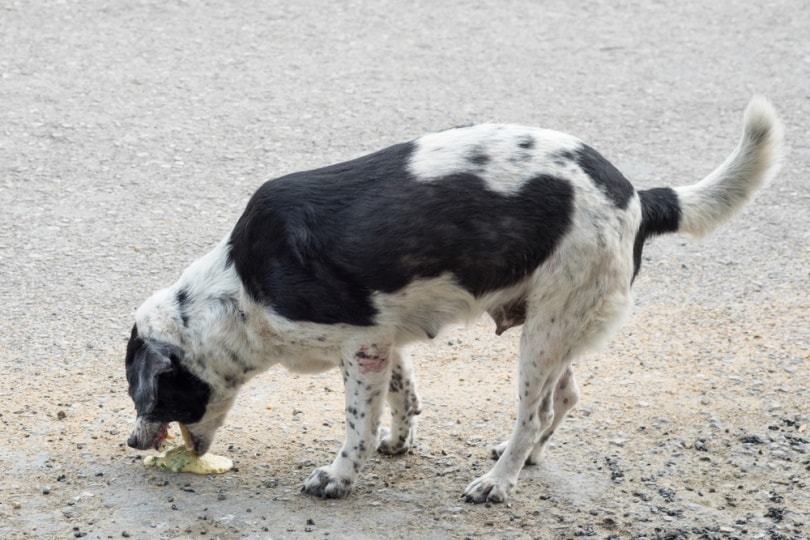
4. They Enjoy the Taste
The answer to “why does my dog like to eat grass?” may simply be that they like the taste. Grass has a high water content and can be refreshing, particularly after rainfall or on a dewy morning.
5. Boredom
Dogs that live with their owners usually get lots of stimulation and time to interact with them. However, if a dog is stuck in a yard or inside a home without much to do, it may eat grass out of boredom. A dog that eats grass in the yard may not get enough stimulation from toys, other pets, or people, so they eat the grass because it’s all they have for entertainment.
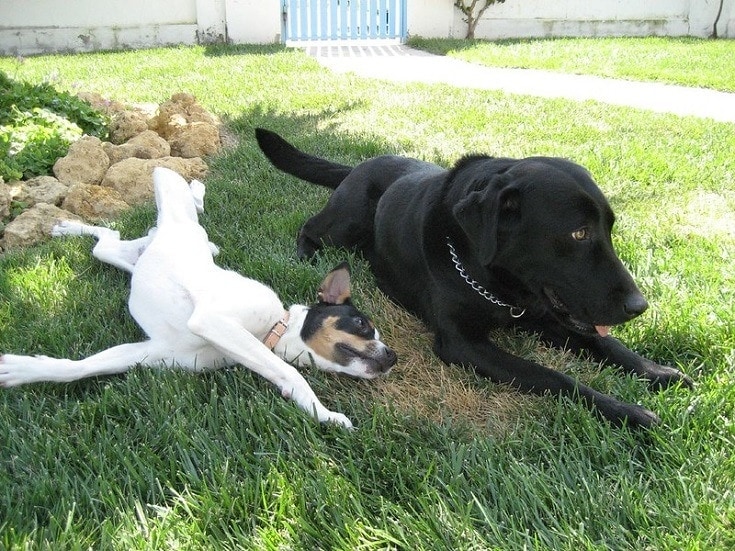
7. To Relieve Excess Stomach Acid
Some dogs suffer from excess stomach acid that can sometimes travel back up the esophagus and be expelled as frothy, green-yellow fluid. This often happens to dogs in the morning and can be caused by stress, hernias, or species-inappropriate food such as oily, spicy food. It is also more common in brachycephalic breeds like pugs. Eating grass on a morning walk could give the acid something to digest and prevent it from being vomited back up.
8. Anxiety
Separation anxiety or high-stress situations can cause dogs to exhibit certain behaviors. Sometimes these become obsessive, and the dog can’t stop repeating them on their own. Eating grass could be a reaction to stress or anxiety, such as having a new baby in the house or their owners going back to work after time at home. Grass eating could work as a comfort mechanism, similar to how people chew on their nails or hair when stressed or anxious.
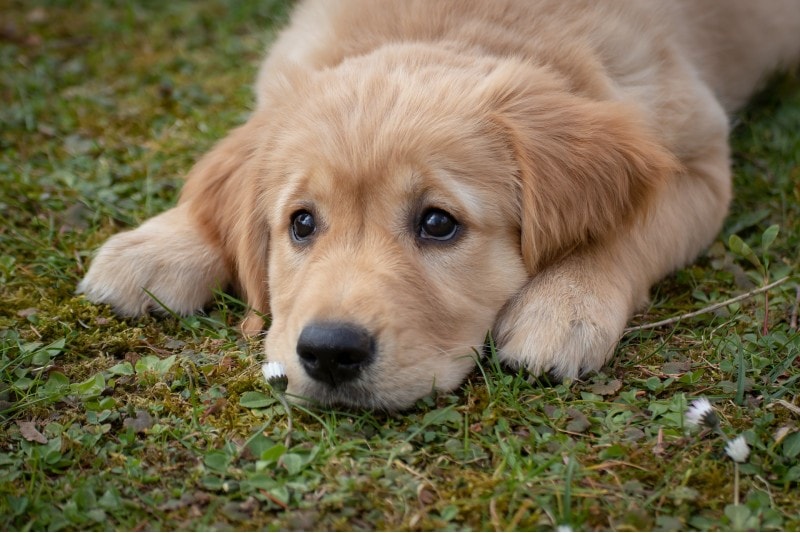
Will Eating Grass Harm A Dog? Is It Safe?
Most of the time, eating grass will not harm your dog. If they’re eating regular grass in your yard and you haven’t put anything like plant food or pesticides on the lawn, there’s very little danger for your dog. The grass may present a small choking hazard, but a dog will usually vomit a piece of grass if it gets stuck in its throat.
Chewing the grass on a walk or in another person’s yard is not as safe, however, as it’s hard to know what might have been sprayed there. In addition, pesticides and herbicides can be toxic to dogs, and they can pick up other intestinal parasites, such as roundworms and hookworms, from other dogs. Finally, some plants are hazardous for dogs to eat, so keep them well away from any plants, flowers, or bulbs.
Conclusion
Dogs eat grass for various reasons, but sometimes the most straightforward answer is the right one; they might like the taste. Indeed, dogs sometimes vomit after eating grass, but this isn’t always the case. It’s usually safe to let your dog eat grass occasionally, but it’s best not to due to pesticide ingestion and parasitic infection risks.
In any case, if your dog shows signs such as vomiting, diarrhea, lethargy, or obsessive behavioral issues, contact your vet and book an appointment to rule out any other potentially nefarious causes of their grass eating.
See also:
Featured Image Credit: Aksana Lebedz, Shuttersotck





